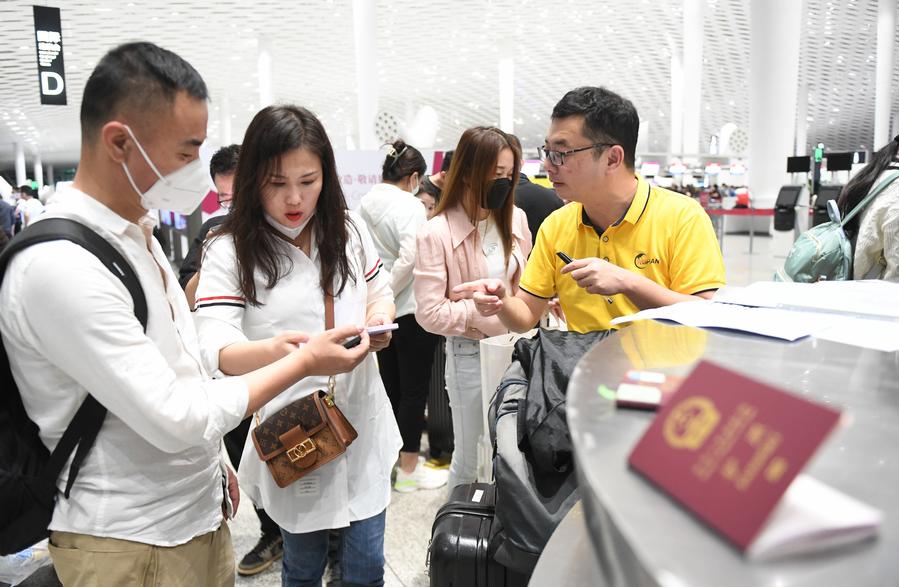Qin Chuan (1st R), leader of a group tour, helps tourists fill out exit and entry information before departing for Bali, Indonesia at the Shenzhen airport in Shenzhen, south China's Guangdong Province, Feb. 12, 2023. (Xinhua/Mao Siqian)
BEIJING, April 28 (Xinhua) -- China's National Immigration Administration (NIA) on Sunday announced a host of policies to facilitate residents' overseas trips.
Measures include diversifying application channels for exit and entry documents, optimizing the application procedures, and extending the stay period. The measures will take effect on May 6, according to NIA.
Under the new policies, residents aged 16 or above (except for civil servants and active military servicemen) in 20 pilot cities, including Beijing and Shanghai, will be able to renew and reissue their passports, as well as travel documents to Hong Kong, Macao and Taiwan regions via online platform.
Chinese mainland residents who apply for multi-entry to Hong Kong and Macao with business purpose can use smart equipment to get a quick-access endorsement. In addition, the duration of stay for holders of business endorsement to Hong Kong and Macao will be extended from seven days to 14 days.
Beijing and Shanghai will be included into the policy of issuing multi-entry endorsements with a validity of one to five years for six designated categories of talent to travel to Hong Kong and Macao, with a duration of stay less than 30 days for each trip.
In addition, a new type of multi-entry endorsement will be issued to mainland residents to travel to Macao for purposes of participating at exhibitions, medical treatment and performing arts activities. One to two companions of those who seek medical services in Macao will be eligible for applying the same endorsement.
A special endorsement will be issued to Chinese mainlanders in tourist groups traveling in Hengqin and Macao, lifting the restrictions on the number of entries for these groups to Macao via Hengqin port in seven days.
The new set of policy is of great significance to improving people's well-being, stimulating market vitality, optimizing the business environment, and helping to shape an open economy at a higher level, according to an official with the administration.





 A single purchase
A single purchase









